A new book by Nidhi Dugar Kundalia explores India's fast-disappearing professions, and through it tells the story of rich local nuances that disturb and enthrall, leaving us with a sense of longing
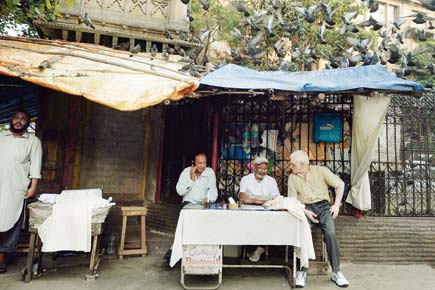
In a photograph from December 2013, a letter writer speaks to a customer at a roadside stall opposite Mumbai GPO.
![]() In the Lost Generation, writer Nidhi Dugar Kundalia explores professions rich with historical nuances and mired in the age-old problems of gender and caste.
In the Lost Generation, writer Nidhi Dugar Kundalia explores professions rich with historical nuances and mired in the age-old problems of gender and caste.
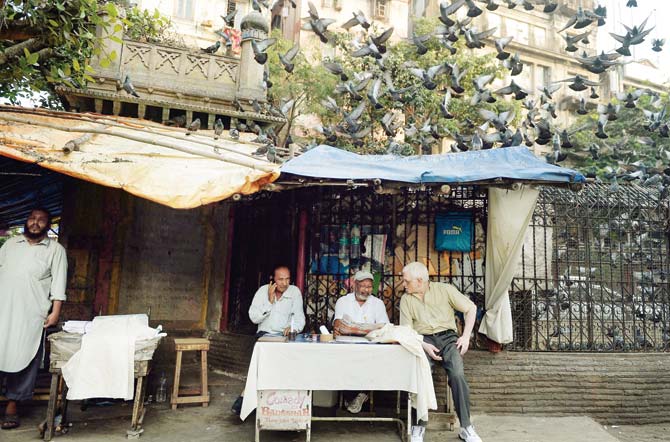
In a photograph from December 2013, a letter writer speaks to a customer at a roadside stall opposite Mumbai GPO. Pic Courtesy/AFP
She argues that it is important to document this softly fading aspect of our country to bring forward the diverse and synergetic nature of the Indian society as opposed to the "disneyfication" that has been written about a lot.
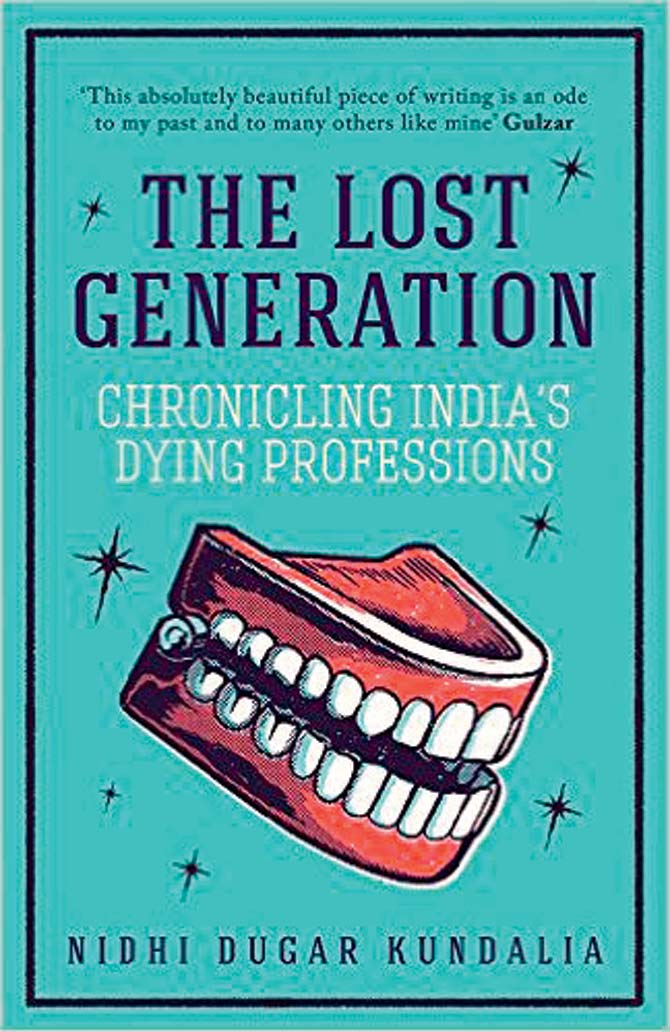
The Lost Generation, Chronicling India's Dying Professions, Nidhi Dugar Kundalia, Random House India, Rs 350
We pick the most startling professions and those that leave us with pangs of nostalgia.
Rudaalis of Rajasthan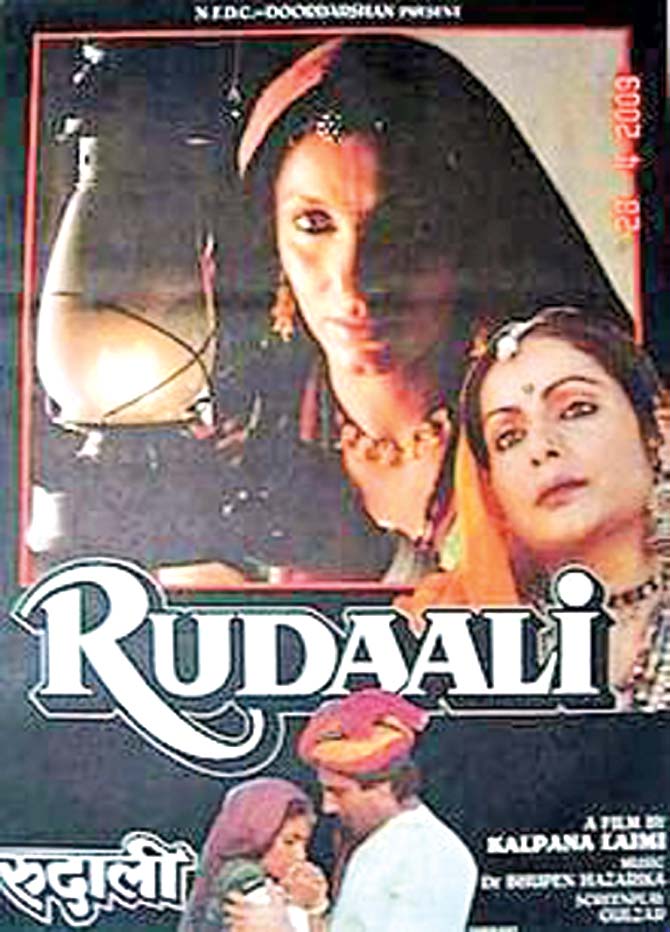
The tales of this community became household knowledge through Kalpana Lajmi's film, Rudaali but what is striking is that not much has changed in certain pockets even after. These women cry professionally since women in Rajput families are not allowed to express emotion publicly. The Rudaalis don't have families. They are maintained by the caste lord and often bear his children. These children only have mothers, no fathers. The author is transported to this primitive world in a village where the system has stayed but is slowly ebbing out as the light of a better life nags the next generation from outside the villages.
Ittar wallahs of Hyderabad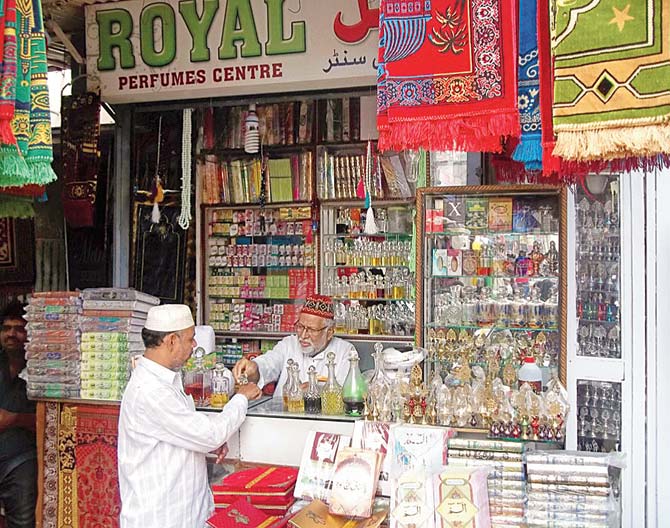
Some claim that ittar, a natural perfume of herbs and flowers, was brought to India by the Mughals. There are others who claim that Ayurveda had introduced us to ittar long before the Mughals had arrived. In Hyderabad, ittar wallahs contribute a significant part of the heady aroma of the place mixed with the scent of haleem (a meat dish) and other delicacies sold around Charminar. They pride themselves in selling natural fragrances, which have sandalwood oil and such, and many of the shops in the area have existed for over 50 years. Now, the expensive ittar finds difficult to survive in a market full of cheap, artificial fragrances. But some from another generation, like the interviewee of the author, says, "If not money, my ittar earns me respect."
Genealogists of Haridwar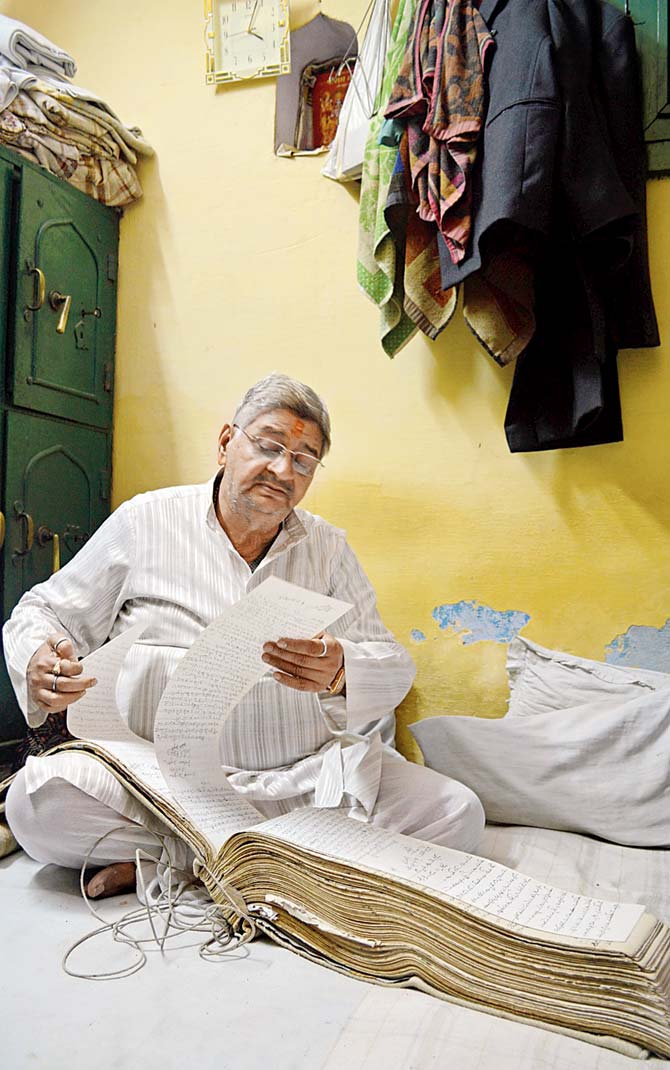
Kundalia takes us to a world of genealogists of Haridwar. These genealogists, called pandas (priests) maintain records of families for centuries; births, deaths, marriages and so on. The reason for their existence, Kundalia points out, has to do with the Hindu belief that the family is everlasting and comprehensive, and each Hindu must look out for his or her ancestors and perform ceremonies for their journey to heaven. People from as far as Punjab, West Bengal and Rajasthan come to the pandas to discover their family history and settle property disputes. In our times, when most identities and personal histories have gone haywire, these genealogists become the archives of many lives lived in India and are a treasure trove for social scientists.
The Godna Artists of Jharkhand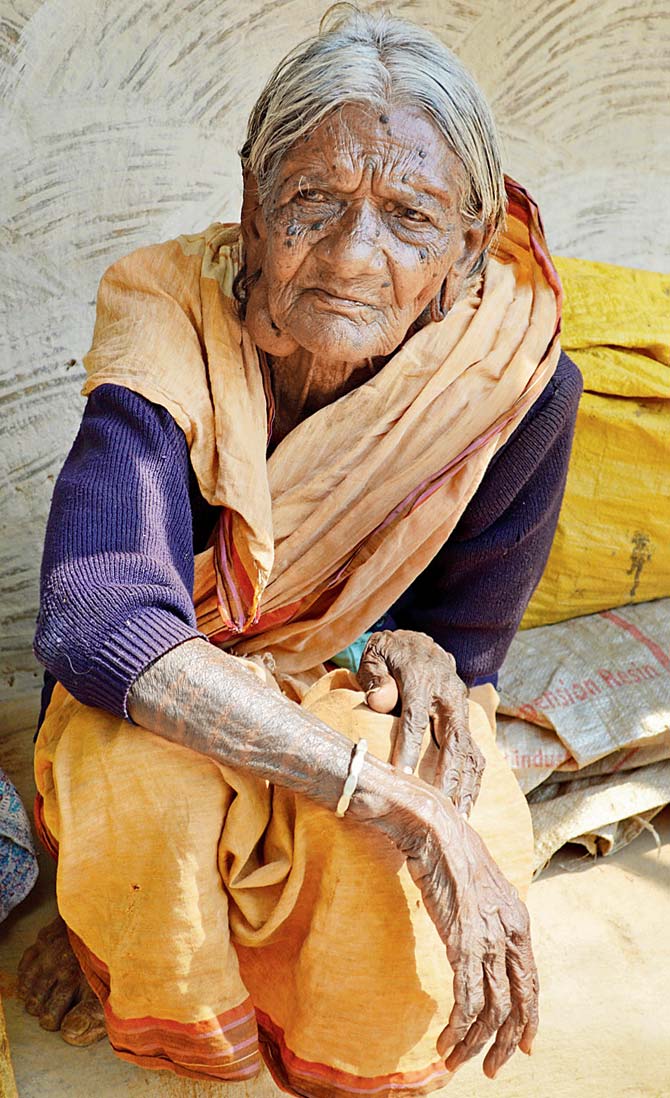
Nowri Tikri from Jharkhand displays an array of Godna tattoos on her forearm
Tattoo art has prevailed in India many centuries before it became a popular urban statement. Be it among the tribes of Nagaland or the nomads of what is now Jharkhand, the shockingly painful, permanent body art is to ward off evil. Here, women pride themselves on the number of tattoos on their body. The first tattoo is usually drawn on the forehead at the age of nine, and Kundalia, when she reaches a tribal hamlet in Jharkhand, witnesses the ceremony. She follows the life of the Godna artist who is an untouchable and not allowed into the homes of villagers. He is not allowed to have a home either. Many tribal women are now removing the Godna on their bodies to mingle in with the crowds, with the Godna artist disappearing into oblivion.
Urdu scribes of Delhi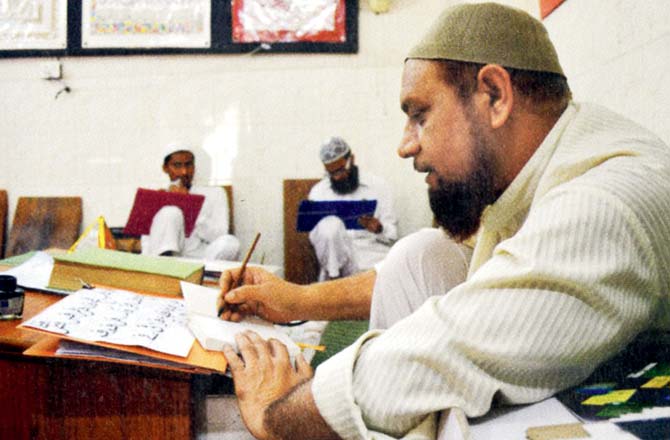
Wasim Ahmed, a calligrapher, teaches students at the Urdu Academy, New Delhi. He says, "One's handwriting is like one's body shape. You can't choose how you are born — fat, thin, round — but you can exercise to shape your lifestyle. Of course, your pen matters too."
Letter writers of Mumbai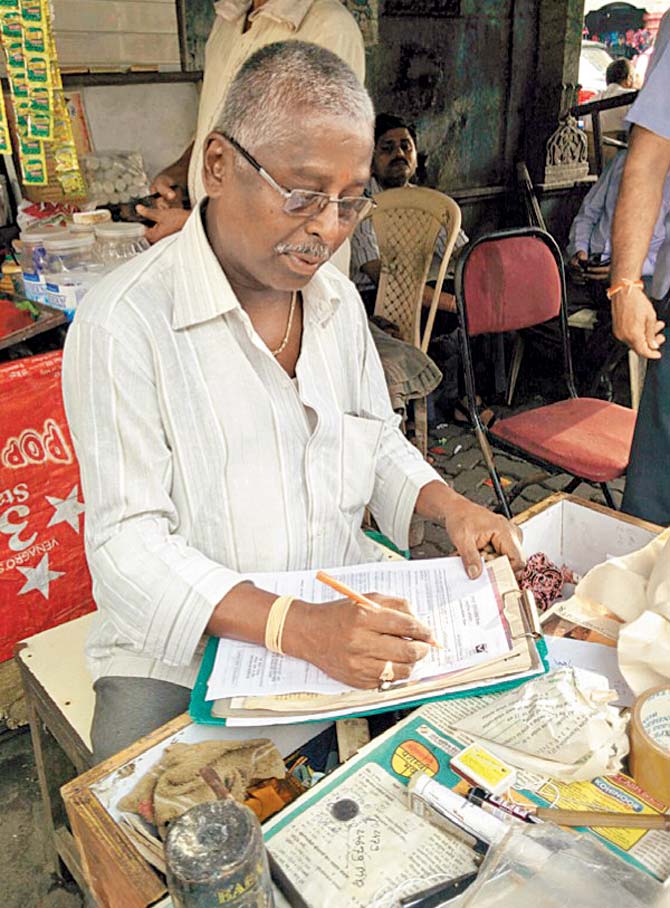
A letter writer in Mumbai. Pic courtesy/Raj Dabholkar
The Indian postal system has been one of the biggest in the world, catering to one of the largest populations. And in the country of overwhelmingly high illiteracy, the writer of letters was a throbbing profession. The man, who conveyed emotions and messages from the sender to the receiver, often added his suggestions and special touches as an expert of writing letters. Kundalia's interview brings out how love was conveyed through angle of stamps and how "missing you" was added by the interviewee to empower communication. The obituary of this profession was written by mobile phones and technology but the letter writers who are still around, carry with them the stories of inner lives of a transforming Mumbai.
 Subscribe today by clicking the link and stay updated with the latest news!" Click here!
Subscribe today by clicking the link and stay updated with the latest news!" Click here!









